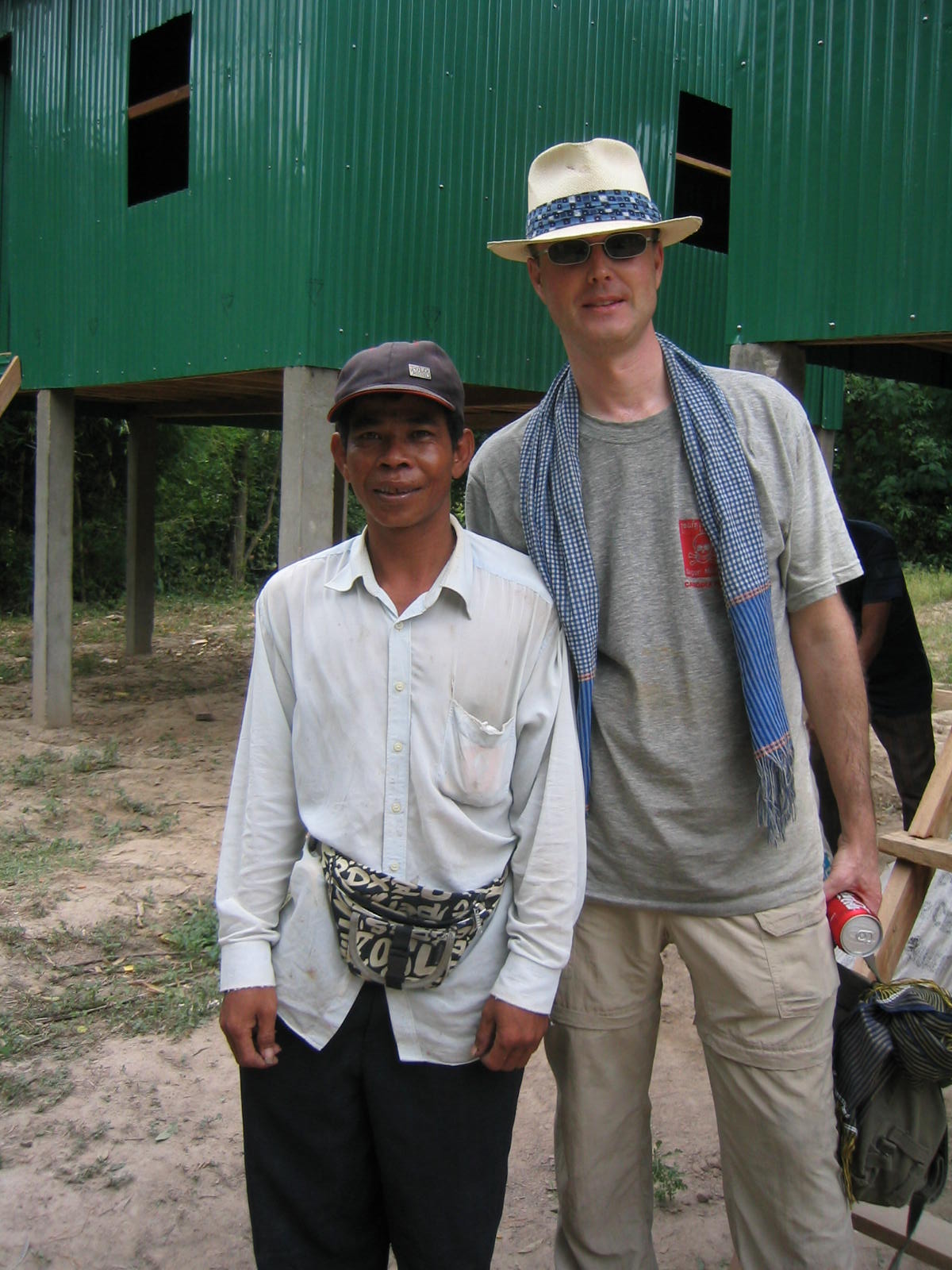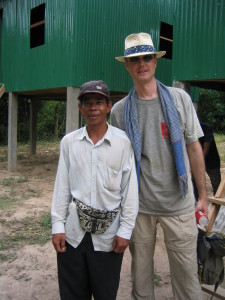David Peck is the founder of SoChange and host of the podcast, Face2Face.
I am often seen as the white, Western male when I come to a project. I stand at over six feet tall (180 cm) and lack any definite tone to my skin color. I can be viewed as rich, the one with the answers, the experience, the backing of large international organizations and so on.
This is a pigeonhole that is hard to break, even though I don’t want to be looked at as the one with all solutions, or with any of the solutions for that matter, but instead as a partner.
What does it mean to partner and how does one play it out in a development context in a meaningful manner? How does the big white guy with plenty of schooling, lots of varied experience, and good intentions steer clear of making things worse? Too often my ego precedes me, but healthy approaches to development partnerships require the ability to stand back and say that I may have been wrong.
In 2004, my wife and I went on a trip to help construct about ten small homes on stilts in a community about forty five minutes outside of Phnom Penh in Kasch Kandal province, alongside a local NGO. That’s where I met Sok. He’s a carpenter and with me in the photo below.
Sok and I shared some Coke and conversation together. Note the fanny pack around his waist. That’s what I was using to carry my nails in for the project. I have a construction worker past so I like making things a little simpler. It saved me a lot of time moving up and down the ladder to get more nails. It was a simple lesson in time management and it cost me two US dollars in the Russian Market, probably more than what Sok was making at the time for several days’ wage. Crazy stats like 60% of people in rural Cambodia make less than 65 center per day are somewhat meaningless until you meet people like Sok. I gave him the pack.
This picture captures, for me, where meaningful connection happens in international development. It’s in the individual relationships we build – being colleagues, co-workers, partners, and, dare I say it, friends. It is through these relationships that our work gains traction and moves forward. Ian Smillie reminds us that capacity building must be about coming alongside and knowing when to leave, get out, and move on.
“Even in deliberate, developmental capacity building projects…training is not a panacea…it is not in any way synonymous with capacity building…And a general lesson about capacity building, one now decades old, is that builders must have good knowledge of ‘buildees.’”[1]
We’ve all heard it said that, “It’s all about relationships.” But too often development is driven by the bottom line and “quantifiable” results. But where do you situate the sanctity of human life within these numbers? You can’t build relationships on a pie chart or a graph. Holistic, meaningful growth requires that relationships must be grounded in trust and rooted in passionate intentions, respect, listening, and love. If you can’t start here, then sustainable development is doomed.
Relationships require a deliberate investment of time and effort. Sometimes though I wonder how well we have apprehended the idea that they also demand a little heart and even more soul. Lend a hand, but first lend your ear to the conversation – open, available, and aware.
On my most recent trip to Cambodia I saw very little sun. The country experienced more rain than they had in the past fifteen years or so. There was serious flooding everywhere, even closing down the airport. At points I found myself wading through waist deep water. It was a lesson for me once again in humility and respect. Not knowing where to step, it was indeed a metaphor for not knowing what’s next. I see it as a good reminder that this is a difficult road to development work, one that needs constant refining, good questions, consistency, and clarity.
Partnerships are ends in themselves. Believe and build. This is the future of our field.
Waist deep, we must press on.
***
[1] Smillie, Ian. Patronage or Partnership, (Bloomfield, USA: Kumarian Press, 2001), 176 and 177
***
David Peck is the founder and Executive Director of SoChange, a groundbreaking organization which works alongside members of the non-governmental and corporate communities in areas such as project design, fundraising, advocacy, CSR and philanthropy. SoChange has spearheaded events such as Why Everything Must Change, which brought together prominent social justice advocates, and the Mosquitoes Suck tour and campaign, which raises funds and awareness for malaria alleviation efforts in Africa.



Great post, great story and spot-on messages!
It’s a topic that is dear to me too, because it is insane that despite 50 or so years of development cooperation there is still so little emphasis put on the relationships built, the trust (which at best is seen as a positive by-product of projects) that is THE fertile ground to develop successful, sustainable initiatives.
It also sounds incredible that ‘partnership’ is a term waddled around without ever giving it much true meaning.
So, thank you very much for reminding everyone about this: Development is human and indeed partnerships are ends in themselves, and also new beginnings…
In relation to this post:
http://km4meu.wordpress.com/2012/02/01/development-between-results-and-relationships/
http://km4meu.wordpress.com/2013/05/19/of-partnerships-deep-and-wide/
And more about this very soon again on my blog – yours came in a swirl of serendipity on my consciousness stream!